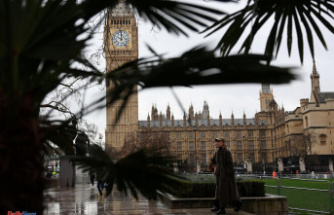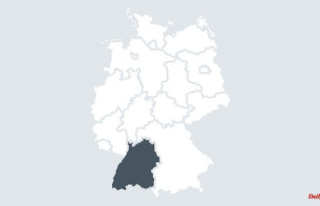Munich (dpa / lby) - Prime Minister Markus Söder (CSU) has announced a doubling of the planned Bavarian energy hardship fund - to one billion euros, if necessary even more. "In the end, the pure hardship fund will certainly be at least one billion instead of 500 million," said Söder on Tuesday after a cabinet meeting in Munich. And he added: "It doesn't have to be the end of the line. We have to see how we can get Bayern through this time." Ultimately, all of this will be seen after the tax estimate and budget planning. However, it can be assumed that there will be many cases of hardship in the Free State.
With the hardship fund, the state government wants to mitigate the consequences of the energy crisis. So far, Söder had announced that up to 500 million euros should go to medium-sized companies, clubs, nursing or social institutions - this sum could now be doubled. In addition, the development bank LfA is to offer companies that are in financial difficulties extended guarantees - in total up to another 500 million euros.
The state government has criticized the federal government's previous plans to limit energy prices as completely inadequate - and is calling on the federal government to take decisive action. The expert commission's proposals to relieve gas customers offer "a lot of light", but countless questions remain unanswered. "It's not boom yet - it's a first step, it's by no means enough so far," said Söder.
The expert commission set up by the government presented a phased model on Monday. This provides for a one-time payment this year and a gas price brake for private households and small and medium-sized companies as well as for industrial consumers in the coming year. Here in particular, the EU Commission still has a say for reasons of competition law.
Among other things, Söder doubted that the previously announced cap on the gas price would be sufficient. In addition, medium-sized companies should be treated just like industry, argued the CSU boss. And clubs, sports, culture or even private schools are completely left out.
Söder also complained that there was no answer to the problems of people who heat with oil or pellets, many of them in rural areas. There is no compensation for them, although the prices here have also risen enormously, said Söder. This is a "major mistake" that affects many people throughout Germany. And in the coming year, the situation threatens to become even more dramatic.
Overall, Söder criticized that the federal government was acting far too timidly, that no clear traffic light concepts had been apparent for weeks. "Germany is threatened with gradual decline," he warned.
Bavaria's Economics Minister Hubert Aiwanger (Free Voters) also called the previous proposals for capping energy prices insufficient - it was all "too late and too little". In particular, the gas price cap does not correspond to what is actually needed.












